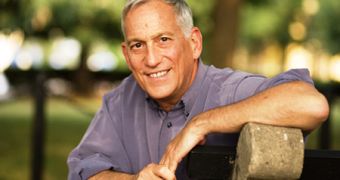Writing a special for the Harvard Business Review, biographer Walter Isaacson is keen to let the world in on the real leadership lessons taught by Apple’s iconic co-founder, Steve Jobs.
“His saga is the entrepreneurial creation myth writ large: Steve Jobs cofounded Apple in his parents’ garage in 1976, was ousted in 1985, returned to rescue it from near bankruptcy in 1997, and by the time he died, in October 2011, had built it into the world’s most valuable company,” writes Isaacson.
The biographer, who spent a lot of time with Jobs during his final months, relays to hbr.org readers how Jobs transformed, or helped transform, seven major industries: personal computing, animated movies, music, phones, retail stores, tablet computing, and digital publishing.
“He thus belongs in the pantheon of America’s great innovators, along with Thomas Edison, Henry Ford, and Walt Disney. None of these men was a saint, but long after their personalities are forgotten, history will remember how they applied imagination to technology and business,” Isaacson states emphatically.
He continues, describing one of the last times he met with Jobs, after he had finished writing most of his book (the official Steve Jobs biography):
“I asked him again about his tendency to be rough on people. ‘Look at the results,’ he replied. ‘These are all smart people I work with, and any of them could get a top job at another place if they were truly feeling brutalized. But they don’t,’” Isaacson writes.
“Then he paused for a few moments and said, almost wistfully, “And we got some amazing things done.” Indeed, he and Apple had had a string of hits over the past dozen years that was greater than that of any other innovative company in modern times: iMac, iPod, iPod nano, iTunes Store, Apple Stores, MacBook, iPhone, iPad, App Store, OS X Lion — not to mention every Pixar film.”
Asking him what he thought was his most important product, Isaacson learned that Jobs regarded Apple as a whole his most prized creation.
“Making an enduring company, he said, was both far harder and more important than making a great product. How did he do it? Business schools will be studying that question a century from now,” writes the biographer.
He thus concludes that “the keys to his success, […] the real leadership lessons of Steve Jobs,” are: Simplify; Take Responsibility End to End; When Behind, Leapfrog; Put Products Before Profits; Don’t Be a Slave To Focus Groups; Bend Reality; Impute; Push for Perfection; Tolerate Only “A” Players; Engage Face-to-Face; Know Both the Big Picture and the Details; Combine the Humanities with the Sciences; Stay Hungry, Stay Foolish.

 14 DAY TRIAL //
14 DAY TRIAL //